The Power of Financial Incentives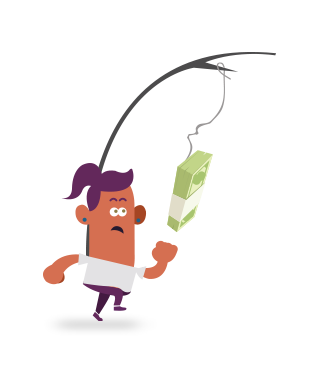
HealthyWage's founders created the company based on inspiration from academic research about financial incentives, and real-world experience with office weight loss challenges. This page summarizes some of that history and research; however, please make no mistake: weight loss is challenging. We present this information to help you understand the origins of HealthyWage and the basis for our approach to behavior change. We do NOT present this information to try to convince you that financial incentives make weight loss easy or any kind of sure bet. Even with a big financial incentive, you still have to make the right choices and put in the serious effort!
Leading academics have found that money enhances weight loss success, making dieters significantly more likely to lose weight. HealthyWage applies that research, offering cash weight loss challenges that model those studies and make losing weight more fun and effective.
You'd think health and vanity alone would be strong enough motivators for weight loss, but financial incentives provide additional benefits that are critical to success. Cash-based challenges are powerful tools that help you (1) commit to a specific starting point (eliminating pre-diet procrastination), and (2) avoid quitting before you've accomplished your goals.
Double-Incentivization
One widely cited study published by the Journal of the American Medical Association ("JAMA") found those who have a financial incentive to lose weight were almost five times more likely to reach their target than dieters with no money at stake. See Volpp, K.G., John, L.K., Troxel, A.B., Norton, L., Fassbender, J., and Loewenstein, G., “Financial Incentive-based Approaches for Weight Loss: A Randomized Trial,” Journal of the American Medical Association, 300(22), 2631-2637 (2008).
The JAMA study, conducted by researchers at Harvard and the University of Pennsylvania, divided a group of dieters (in the same weight loss program) into groups. One of the groups received no financial incentive. Another group received a double-incentive in the form of a cash weight loss bet. Each participant wagered up to $336. As a negative incentive, if the dieters failed to achieve their goal they lost the cash deposit. As a positive incentive, the dieters were offered a cash prize of up to three times their deposit if they achieved their weight loss goal.
The results were astounding. Dieters in the incentive group lost more weight than dieters in the non-incentive group, and dieters in the incentive group were more likely than dieters in the non-incentive group to achieve their weight loss goal.
HealthyWage challenges -- which include JAMA-like betting and also a team weight loss challenge -- are all based on the double-incentivization model. We believe you are more likely to succeed if (1) you stand to lose something if you fail and (2) you stand to win something significant if you succeed.
Long-Term Success
A widely publicized 2013 study by Mayo Clinic revealed that a well-designed incentive program produces outstanding, long-term success. The year-long Mayo study divided participants into two groups: one group had an opportunity to win money for losing weight and one group did not. Both groups were given extensive weight loss tips, reminders and web-based tools for weight loss.
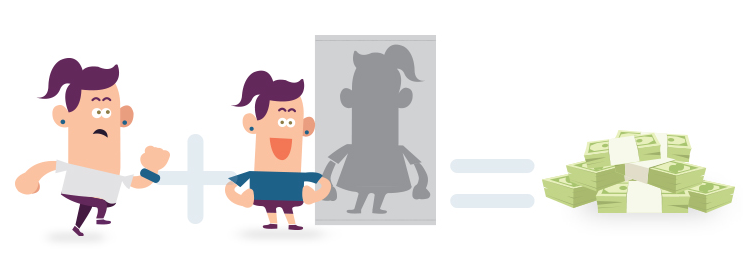 The results were conclusive. The participants who received cash incentives were more likely to stick with the weight-loss program and lost more weight than participants who received no incentives. Researchers concluded that 62% of those in the incentivized group lost weight, compared to only a 26% success rate in the non-incentivized group.
The results were conclusive. The participants who received cash incentives were more likely to stick with the weight-loss program and lost more weight than participants who received no incentives. Researchers concluded that 62% of those in the incentivized group lost weight, compared to only a 26% success rate in the non-incentivized group.
HealthyWage's challenges always last at least ninety days (i.e., the accepted minimum for establishing new habits and lifestyle changes) up to a full year, just like the Mayo study.
Weight Loss Betting at Work
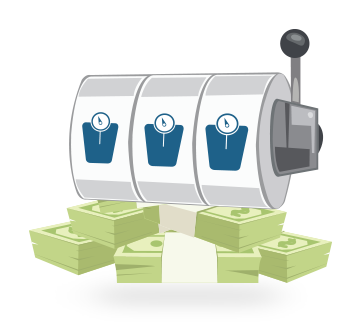 In a major real-world test of financial incentives, HealthyWage was commissioned by Optum Health, a wholly owned subsidiary of United Health Group (one of the largest health insurers in the world) to offer its employees the opportunity to make a weight loss bet. Participants made a $100 loss bet and had six months to lose ten percent of their weight. HealthyWage awarded $400 to each successful participant.
In a major real-world test of financial incentives, HealthyWage was commissioned by Optum Health, a wholly owned subsidiary of United Health Group (one of the largest health insurers in the world) to offer its employees the opportunity to make a weight loss bet. Participants made a $100 loss bet and had six months to lose ten percent of their weight. HealthyWage awarded $400 to each successful participant.
As with the academic studies, the results were outstanding. Among the most impressive stats: almost 2/3 of male participants achieved the 10% weight loss goal.
Making Weight Loss Fun Is Key
One of the main reasons HealthyWage is so successful and popular is that HealthyWage is lots of fun. Academic research and common sense both suggest that no weight loss program is complete without the element of fun.
The Power of Games
Academic research on gamification -- i.e., the use of game mechanics and design, fun, feedback loops, and rewards in non-game contexts, such as fitness and weight loss -- has gained respect and tremendous popularity in recent years. That's because making hard work into a game tends to make participants more engaged and successful.
HealthyWage follows academic and industry research on gamification, providing users with an exciting challenge that removes pre-diet procrastination and helps prevent dieters from giving up.
Don't Take Our Word For It...
Sue J, Forsyth, GA
Lost 78 Pounds
Won $300
*Results may vary.
“HealthyWage is an outstanding program because it allows you to bet on yourself and enjoy a 100% return on that bet. Their community of members who were in it to win it like me was such an encouragement not to mention I could not wait to submit my weigh-in number and watch it shrink each week!”
Read more about Sue's weight loss success HERE.
Theresa J, Sarasota, FL
Lost 36 Pounds
Won $300
*Results may vary.
“The HealthyWage financial incentive helped a lot because I am not frivolous nor do I gamble. It provided a great opportunity to gauge my seriousness and determination, and it worked beautifully.”
Learn about Theresa's HealthyWage experience here.
Nate C, from Centre, PA
Lost 107 Pounds
Won $300
*Results may vary.
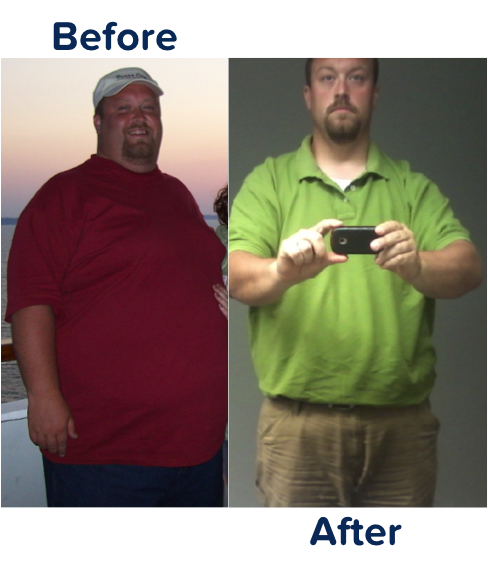
“HealthyWage kept me honest and on track to becoming healthier than I would have done had I not had the financial incentive as a prime motivator.”
Find out how Nate was so successful here.
Visit our Success Stories page for endless inspiration.
HealthyWage Is Smart
We're nerds who follow the latest academic research about making financial incentive challenges as effective (and fun) as possible. We take part in research studies and work hard to make ourselves the world's leading experts on how to optimize incentive-based behavior change and healthy lifestyle maintenance. Turning academic and industry research into real world success is not easy, but somebody's got to do it!

We also constantly fine-tune our challenges based on your feedback and comments from the many large companies and government bodies that use HealthyWage as part of employee wellness benefits (you don't have to work for one of those companies to participate...everyone is welcome). We also pay close attention to academic and clinical studies about a wide range of related behavior-change tools, like competition, team work, and structured peer pressure.

Our co-founders and staff have amassed some impressive credentials, including degrees from major research universities, including Harvard, Oxford, UVA, Emory, the University of Minnesota and the London School of Economics, with specializations ranging from public health policy to neuroscience to law. Their professional experience is equally nerdy, and makes our team the perfect combination of talent to help you find fun, effective ways to make healthy behavior changes and maintain those changes with healthy lifestyles.

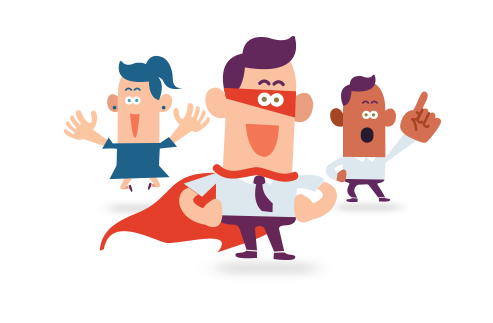
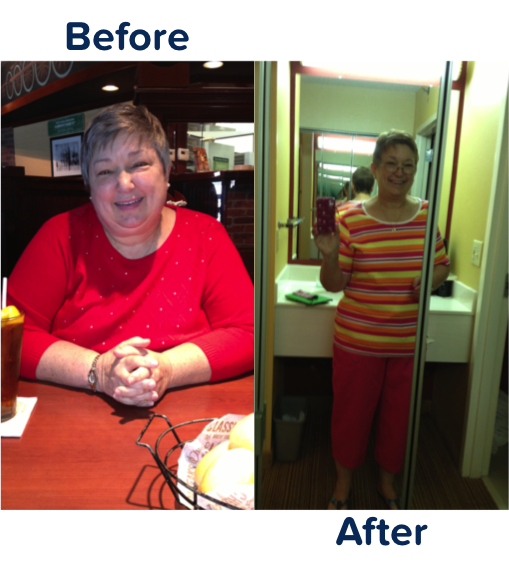


Social dieting makes weight loss more fun and successful
Social dieting -- including elements like competition, team work & encouragement and, of course, gentle peer pressure (you don't want to screw things up for your team!) -- is a powerful and exciting weight loss tool. The latest research and HealthyWage's own experience suggest that you should consider including social dieting in your weight loss plan.
Weight Loss Is Contagious
In a recent Harvard study, published in the New England Journal of Medicine, researchers found that social networks play a significant role in the trait of obesity, including in its proliferation and its remediation. In other words, people with obese co-workers, friends and family are more likely to be obese themselves.
Published by Nicholas A. Christakis, MD, PhD, (a professor at Harvard Medical School), et al., the article explains the results of a study in which researchers “evaluated a network of 12,067 people who underwent repeated measurements over a period of 32 years . . . [and] examined several aspects of the spread of obesity, including the existence of clusters of obese persons within the network, the association between one person’s weight gain and weight gain among his or her social contacts, the dependence of this association on the nature of the social ties (e.g., ties between friends of different kinds, siblings, spouses, and neighbors), and the influence of sex, smoking behavior, and geographic distance between the domiciles of persons in the social network.”
The researchers concluded that social networks are closely tied to obesity, and examined the reasons why social networks affect people’s weight, including that people “are influenced by the evident appearance and behaviors of those around them” and because “social contacts might change a person’s tolerance for being obese or might influence his or her adoption of specific behaviors.” The researchers stated that “[a] person’s chances of becoming obese increased by 57% . . . if he or she had a friend who became obese in a given interval.” The researchers also concluded that “weight-loss interventions that provide peer support — that is, that modify the person’s social network — are more successful than those that do not. People are connected, and so their health is connected.”
See N.A. Christakis and J.H. Fowler, "The Spread of Obesity in a Large Social Network Over 32 Years," New England Journal of Medicine 357(4): 370-79 (July 2007)
Teamwork Makes Weight Loss More Fun & Successful
A Brown University study concluded that social networks and teamwork play a significant role in enhancing weight loss outcomes in weight loss interventions.
In particular, the researchers found that having more social contacts trying to lose weight is connected with greater weight loss intentions, and that changes in physical activity are similar among teammates in a team-based physical activity campaign.
See Leahey, T.M., Kumar, R., Weinberg, B., Wing, R.R., “Teammates and Social Influence Affect Weight Loss Outcomes in a Team-based Weight Loss Competition,” Obesity, 20 7, 1413-18 (2012).
Losing weight with friends makes weight loss easier
Since your team has to win as a group, every member has a stake in the other members' success. The result is lots of support and positive peer pressure. And the desire to beat the other teams adds to the excitement and motivation of the competition.
Encouragement is important
Want to dramatically increase your chance of success in losing weight? Do it in a group! Losing weight with a group of motivated friends makes the process easier, not to mention a lot more fun. So sign up, get your group hug on, and lose weight with us. Oh, and don't forget about that pot of gold at the end of the rainbow...